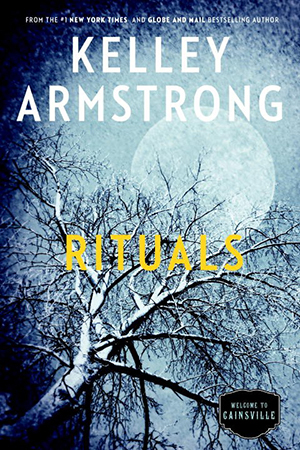
by Nathan Elias
Writing is such a mysterious thing. Some people marvel at the task and enjoy its fruits (like books, movies, or music) while others take on the task of trying to create the things that people love. If you’re someone who has started on the writing path, be warned: it can be daunting. But don’t let the winding road deter you—it is a trip worth taking. Here are seven reasons you should never stop writing:
Pick up any book about the craft of writing and somewhere the author will advise committing a specific amount of time to writing per day, per week—whatever works for you. Here are some examples:
- “The first thing you have to know about writing is that it is something you must do every day—every morning or every night, whatever time it is that you have.” –Walter Mosley (This Year You Write Your Novel, p.7)
- “You try to sit down at approximately the same time every day. This is how you train your unconscious to kick in for you creatively.” –Anne Lamott (Bird by Bird, p.6)
- “…in order to achieve mastery [writers] must read widely and deeply and must write not just carefully but continually, thoughtfully assessing and reassessing what [they] write, because practice for the writer as for the concert pianist, is the heart of the matter.” –John Gardner, (The Art of Fiction, p.9)
- “…successful writers attest that unless they prepare the conscious mind with the habit of work, the gift does not come. Writing is mind-farming. You have to plow, plant, weed, and hope for growing weather.” –Janet Burroway & Elizabeth Stuckey-French (Writing Fiction, p.13)
- “You just have to sit in the chair,” –Donald Ray Pollock, paraphrased in conversation.
No matter how you look at it, one reason you should never stop writing is the knowledge that if you’re serious about it, you have to commit.
Fiction, poetry, creative non-fiction, screenwriting, journaling—any genre of writing requires a writer to either look into the Self or observe Others (people, places, or things). When learning the fundamentals of writing, even on the most basic levels, a writer begins to see aspects of the world in different ways. Trying to write about characters and bring them to life on the page, a writer might use aspects from their own lives, people they know, or lives they’ve learned about. In attempting to understand ourselves and others truly, self-worth and empathy can help strengthen a writer’s identity as a person.
So you’ve committed to writing habitually and using writing as a form of discovery—now you’re wondering if your writing is worth it. Doubt starts to creep in, maybe you think your writing is an embarrassment to yourself. It is important to remember that most writers write terrible first drafts, and put relentless hours into perfecting the work we love them for. You might pour your heart into a novel for over a year only to hear back from an agent that it “just isn’t hitting the mark.” Do not fret—if you’ve committed to the writing life, who knows what writing boundaries you might transcend in the years to come? You may rediscover yourself and your book at a time when literary trends are different. Literature is always evolving but is also cyclical—trends usually are “the same but different.”
Life gets in the way. It’s a fact. Not everyone can commit to writing every day, as the “masters of the craft” have advised. From family, to school, or work, writing is often a passion that slowly becomes a meager hobby over time. The struggle is to find a way, no matter what, to wedge in some writing time. Get something, anything, on paper. If you only have a few minutes during a lunch break to scribble a few sentences, then that’s what it takes. Keep a project in mind, as small as a poem or as big as a feature-length screenplay. Keep a notebook or a document open on your computer, and get the words down as soon as possible. Not everyone can afford to sit for an extended period of time—but what makes a person a writer is simply getting the words down.
Stories need to be told, and we all have them. If you’ve ever toiled over a friend or loved one’s real life issues, you probably know the feeling of helplessness. Writing for other people can help us come to terms with parts of life that we cannot control, or even see things from a new perspective. Maybe there is a secret in your own life, or something in your history that won’t stay buried. Writing, like time, can heal some emotional wounds and, like daily vitamins, can be antidotal.
Like any art, it can be a scary thing to release your work out into the world. How do you know when your story, poem, or book is finished? How does a painter know when a portrait is finished? A song can always be re-recorded or remastered, and books can be rereleased. So where is the line drawn? You could have written a swell book, signed with an agent who is excited about your project, and still wait for years before publication. So you have to keep writing. Think of the next thing and begin again until it is time to revisit old work, if that opportunity arises.
Whether it is journaling, composing poetry, or any other type of mindful writing—the act of conjuring language into meaning can be a cathartic experience for anyone. From writing about trauma to simple observations about the world, the process of making sense of one’s thoughts can serve as a form of release—a profound letting go of the past, or embracing the present. The act of sitting down to write can be like meditation: focused breaths, clear thoughts, and concentrated energy help stabilize the mind and soul, especially if done in controlled periods of time. And like walking meditation, or hyper-awareness through the day-to-day activities, writing can also become a mental activity carried on by the subconscious.
The amount of reasons to write or be a writer are plentiful—they don’t end here. There is no one way to be a writer, but one area anyone can agree is that a writer is someone who writes. Hopefully this list can help you stay inspired and committed on the path.
Nathan Elias is the program assistant for inspiration2publication, and the author of A Myriad of Roads that Lead to Here (Scarlet Leaf Publishing House, August 2017). His work has appeared in Literary Orphans, Hobart, The Blotter, Red Fez, Eclectica Magazine, Birdville Magazine and elsewhere. In 2015 his short film The Chest premiered at Cannes Film Festival. He has served as genre editor for the literary journal Lunch Ticket, and is working on an MFA in Creative Writing at Antioch University Los Angeles.
Advertisements Share this:





